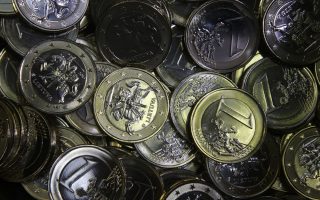European recovery fund offers twofold challenge

The big news isn’t the size of the European recovery fund. The 800 billion euros of course makes it the largest European program since the Marshall Plan, but it is relatively small compared to the American one.
The biggest news is, rather, that steps have been taken to consolidate the debt: For the first time the European Commission announced publicly that it is borrowing from the markets and distributing the money to member-states, not based on the size of each country’s economy but taking into account each country’s needs after the pandemic.
Greece is one of the countries that will benefit from this. It therefore has the obligation to make this plan work. Allow me to explain:
In the next seven years we will have the chance to absorb €30.5 billion from the the Next Generation EU recovery instrument.
In total, along with the money from the new European structural and investment (ESI) funds and the new Common Agricultural Policy, the total funds will exceed €80 billion. We have the opportunity to use funds equal to 50% of our current GDP. These funds will be utilized within the framework and priorities that the European Commission has set; so 60% of the funds will go to green and digital transition.
The government’s plan was forged under strict deadlines and has been approved by the Commission. We now have to implement it rationally and on time. The Greek governments have in the past managed five ESI funds (the Marshall Plan and four European programs), leaving no serious growth footprint.
Although some large and important works were completed, we built empty factories and apartment buildings in the countryside instead of investing in agriculture. These mistakes will not be repeated. The dangers are, first, a potential channeling of funds toward other activities, and, second, an inability to absorb all the funds.
The recovery fund will not distribute funds to everyone, but only to the strongest and most modern part of the Greek economy. The other part, which is nonviable and survives each crisis only at the expense of taxpayers and insurance funds, will of course try to receive a share of the money. Every euro that is channeled to zombie companies will harm us.
The second danger, as mentioned above, is that the country won’t be able to absorb all the funds. The obstacles lie within the state (especially our justice system), Greek entrepreneurship and the banks, which are still licking their wounds stemming from nonperforming loans. The challenge is to overcome these.
This is a twofold challenge. It is about us: Do we use or do we lose the funds? It is about the whole of Europe: Will it be vindicated for consolidating the debt or will it give the chance to the “frugal” to say that, with us Southerners, it shouldn’t happen again?





